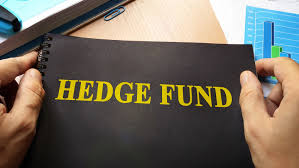
Hedge funds underperformed in June, increasing their losses for the year to over 6 per cent, according to a report released on Friday by hedge fund data provider HFR.
Last month, the fund-weighted composite index declined 3.08 percent. In June, all four hedge fund categories tracked by HFR – equity, event-driven, macro, and relative value – reported losses.
"Powerful risk off trends accelerated in June driving extreme financial market volatility with hedge funds trading through a wide range of risks including not only generational inflation, increasing interest rates, the continuation of the Russia/Ukraine war and record energy price increases, but also the increased likelihood of a consumer-led US economic recession," Kenneth J. Heinz, president of HFR said in a statement.
Equity hedge funds, particularly those engaged in growth stocks, have been affected the hardest by market volatility since their valuations rely more largely on future cash flows. They plummeted 12.3 per cent in the first half of the year, but beat the S&P 500, which fell about 20 per cent.
Macro hedge funds, on the other hand, were still in the black for the first half of the year, up 8.98 per cent, after falling 0.42 per cent last month. Macro managers trade a wide range of assets, including bonds, currencies, interest rates, stocks, and commodities.
Despite a rough month last month, several macro managers were able to generate double-digit year-to-date gains. According to two sources, Rokos Capital Management's macro fund was down 4% in June, although its performance this year is still up 12 per cent.
According to reports, AQR Capital Management's global macro strategy fund increased 23.1 per cent through June, benefiting from an environment of increasing inflation and tightening monetary policy.
Bridgewater Associates, which gained 32.2 per cent in the first half of the year despite losses in inflation-linked bonds and emerging market currencies trading.
According to HFR, hedge fund performance has been widely disparate this year. The top decile of the HFRI Fund Weighted Composite Index gained 34.6 per cent on average, while the bottom decile lost 32.2 per cent.
HFR said that gains were limited to 37 per cent of the funds.
(Source:www.reuters.com)
Last month, the fund-weighted composite index declined 3.08 percent. In June, all four hedge fund categories tracked by HFR – equity, event-driven, macro, and relative value – reported losses.
"Powerful risk off trends accelerated in June driving extreme financial market volatility with hedge funds trading through a wide range of risks including not only generational inflation, increasing interest rates, the continuation of the Russia/Ukraine war and record energy price increases, but also the increased likelihood of a consumer-led US economic recession," Kenneth J. Heinz, president of HFR said in a statement.
Equity hedge funds, particularly those engaged in growth stocks, have been affected the hardest by market volatility since their valuations rely more largely on future cash flows. They plummeted 12.3 per cent in the first half of the year, but beat the S&P 500, which fell about 20 per cent.
Macro hedge funds, on the other hand, were still in the black for the first half of the year, up 8.98 per cent, after falling 0.42 per cent last month. Macro managers trade a wide range of assets, including bonds, currencies, interest rates, stocks, and commodities.
Despite a rough month last month, several macro managers were able to generate double-digit year-to-date gains. According to two sources, Rokos Capital Management's macro fund was down 4% in June, although its performance this year is still up 12 per cent.
According to reports, AQR Capital Management's global macro strategy fund increased 23.1 per cent through June, benefiting from an environment of increasing inflation and tightening monetary policy.
Bridgewater Associates, which gained 32.2 per cent in the first half of the year despite losses in inflation-linked bonds and emerging market currencies trading.
According to HFR, hedge fund performance has been widely disparate this year. The top decile of the HFRI Fund Weighted Composite Index gained 34.6 per cent on average, while the bottom decile lost 32.2 per cent.
HFR said that gains were limited to 37 per cent of the funds.
(Source:www.reuters.com)





